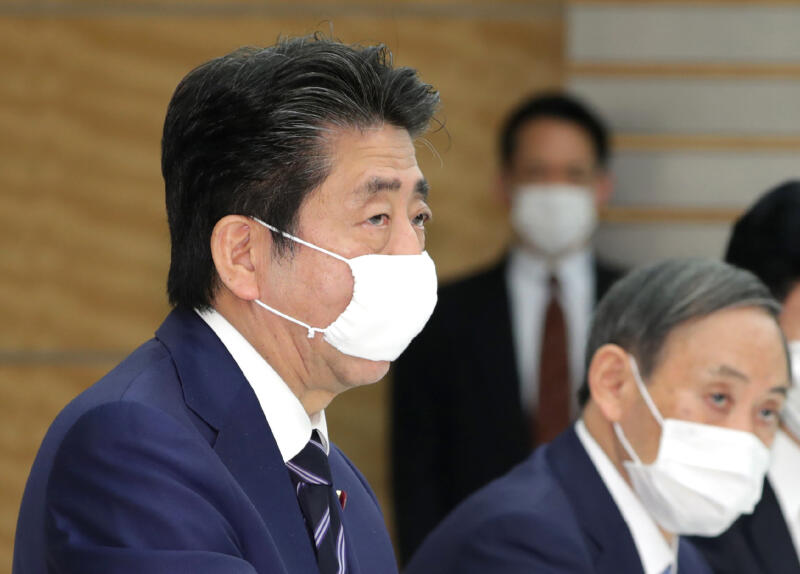Coronavirus: Japan PM Shinzo Abe calls on firms to cut supply chain reliance on China
Sign up now: Get insights on Asia's fast-moving developments

Shinzo Abe earmarked about 240 billion yen (S$3.2 billion) to support domestic companies.
PHOTO: AFP
Follow topic:
TOKYO - "Made In China" Japanese goods may be the latest casualty of the coronavirus pandemic as Prime Minister Shinzo Abe resolves to wean firms off their dependence on China.
To help them do it, Mr Abe has earmarked about 240 billion yen (S$3.2 billion) to support domestic companies in decoupling their supply chains from China, especially those in high value-added manufacturing.
"The strategy among businesses has long been China-Plus-One," said Dr Takashi Suzuki, an expert on Sino-Japan ties at the Aichi Prefectural University on Thursday (April 16), referring to how some businesses cover their baseline by supplementing a non-China location.
"But in the medium to long term, there will likely be a shift to 'Plus China'," he added, as companies reduce risks by putting fewer eggs in the Chinese basket.
While the shift has been under way since the height of the trade war between the United States and China last year, Covid-19 may hasten the process.
Japan's Prime Minister Office, in a document last week detailing 108 trillion yen in emergency economic measures, said the pandemic "has clearly exposed grave vulnerabilities in the supply chain of Japanese companies".
The first cluster of Covid-19 infections had occurred at a wholesale market in Wuhan, triggering a lockdown of the city and factory closures across China.
The document pinpointed Japan's current struggles to secure enough masks, ventilators and personal protective equipment amid the worsening pandemic.
Mr Abe has privately likened the fight against Covid-19 to World War III, wrote political journalist Soichiro Tahara on his blog this week, noting the state of emergency declaration in Japan last week had marked a "change from a 'peacetime' to a 'wartime' mindset".
The plan to support businesses diversify from China, which is part of Japan's 108 trillion yen stimulus package, urges "the return to domestic production any products or materials that are highly dependent on a single country".
While urging businesses to shift their production bases home, Japan has also encouraged them to diversify their production lines to South-east Asia by giving them subsidies.
Small and medium-sized enterprises can get subsidies to cover two-thirds of the cost while large companies can have half the cost reimbursed. More support will be given to companies producing medical supplies in dire shortage.
Dr Akio Takahara of University of Tokyo's Graduate School of Public Policy said the decoupling policy is not uniquely Japanese.
"It is becoming clearer that too much concentration and dependence on one country is not desirable," he told The Straits Times. "Such a principle of diversification will be implemented not only by Japanese companies, but by all, including Chinese ones."
Still, Asia's two largest economies have made a show of their closer ties, with their leaders making hackneyed statements of how they are on the verge of a "new era" in ties.
But Covid-19 threatens to derail more than just President Xi Jinping's visit, which was slated for spring but has now been postponed.
Dr Shin Kawashima, a Sino-Japan expert of the University of Tokyo, said any political measure is, above all, a response to the "Chinese risk", and that moving production bases does not mean Japan will stop doing plenty of business with China.
Politically speaking, however, he said there was "no atmosphere to welcome Xi on a state visit anytime soon".
Japan will also see as a negative, he said, the fact that its Self-Defence Force's scrambles over the disputed Senkaku/Diaoyu islands continues to be high despite the coronavirus pandemic.

